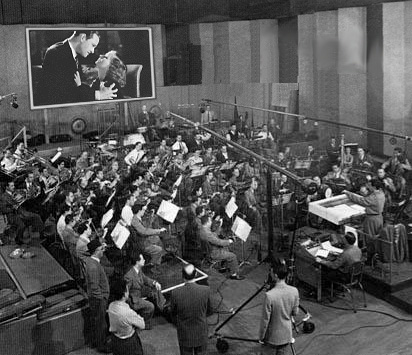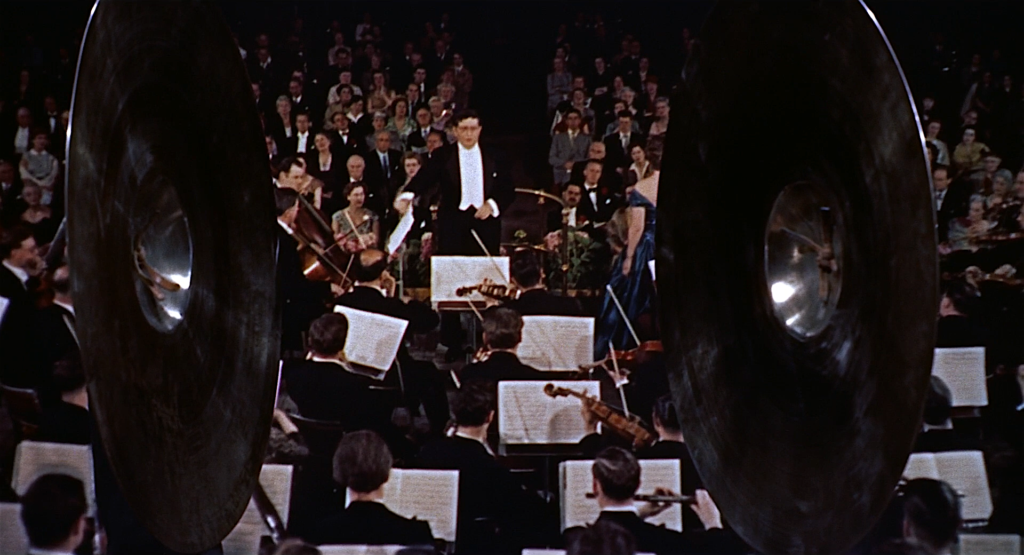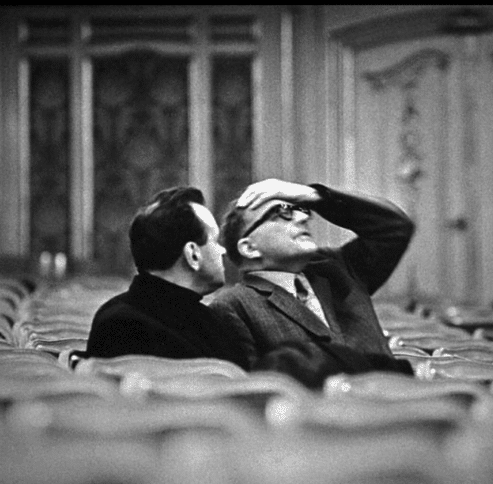“When you’re forty, half of you belongs to the past—and when you’re seventy, nearly all of you.”
Jean Anouilh, Time Remembered (trans. Patricia Moyes)
Terry Teachout on the arts in New York City
“When you’re forty, half of you belongs to the past—and when you’re seventy, nearly all of you.”
Jean Anouilh, Time Remembered (trans. Patricia Moyes)
“A fault concealed is presumed to be great.”
Martial, Epigrams
Bing Crosby sings a medley of “Pennies from Heaven,” “The Second Time Around,” and “In the Cool, Cool, Cool of the Evening” on The Bob Hope Chrysler Special, originally telecast by NBC on November 16, 1966:
(This is the latest in a series of arts- and history-related videos that appear in this space each Monday, Wednesday, and Friday)
“The complete life, the perfect pattern, includes old age as well as youth and maturity. The beauty of the morning and the radiance of noon are good, but it would be a very silly person who drew the curtains and turned on the light in order to shut out the tranquillity of the evening. Old age has its pleasures, which, though different, are not less than the pleasures of youth.”
W. Somerset Maugham, The Summing Up

One of my Twitter followers asked over the weekend if I’d post a list of my favorite film scores. This is, needless to say, an impossible task, but I did spend a few minutes drawing up the following roster.
I hasten to point out that my little list isn’t comprehensive in any way and doesn’t pretend to be: all I’ve done is name one hundred film scores that I like and find memorable. Had I made it a month later, or earlier, I’m sure the contents would have been somewhat different (though not drastically so!). You’ll see that I have a bias toward old-fashioned “symphonic” scores, but I think you might also be surprised by some of the non-symphonic scores that made my list.
Here goes:
• Michael Andrews Me and You and Everyone We Know
• Georges Auric Roman Holiday
• John Barry The Lion in Winter
• George Bassman Ride the High Country
• Elmer Bernstein The Grifters, The Magnificent Seven, The Man With the Golden Arm, To Kill a Mockingbird
• Leonard Bernstein On the Waterfront
• Carter Burwell Blood Simple, Fargo, No Country for Old Men
• Gary Chang A Shock to the System
• Ry Cooder Paris, Texas
• Aaron Copland The Heiress, Of Mice and Men, Our Town, The Red Pony
• Georges Delerue A Man for All Seasons, Shoot the Piano Player
• Adolph Deutsch High Sierra, The Maltese Falcon, Ramrod
• Jerry Fielding The Wild Bunch
• Hugo Friedhofer The Best Years of Our Lives, One-Eyed Jacks
• Jerry Goldsmith Chinatown, In Harm’s Way, Lonely Are the Brave, Patton, The Sand Pebbles
• Jonny Greenwood There Will Be Blood
• Dave Grusin The Fabulous Baker Boys
• James Newton Howard The Fugitive

• Bernard Herrmann Cape Fear, Fahrenheit 451, Garden of Evil, The Ghost and Mrs. Muir, On Dangerous Ground, North by Northwest, Psycho, Vertigo, “Walking Distance” (an episode of The Twilight Zone)
• Maurice Jarre Lawrence of Arabia, Witness
• Rolfe Kent About Schmidt, Election
• Erich Wolfgang Korngold The Adventures of Robin Hood, Kings Row, The Sea Wolf
• Henry Mancini Wait Until Dark
• Cliff Martinez The Limey
• Ennio Morricone Cinema Paradiso, Once Upon a Time in the West, Ripley’s Game, The Untouchables
• Jerome Moross The Big Country
• Alfred Newman Captain from Castile
• Thomas Newman The Shawshank Redemption
• Alex North The Misfits, A Streetcar Named Desire, Who’s Afraid of Virginia Woolf?
• André Previn Bad Day at Black Rock, Elmer Gantry
• David Raksin The Bad and the Beautiful, Laura
• Nino Rota La Dolce Vita
• Miklós Rózsa Ben-Hur, Brute Force, Double Indemnity, The Killers, Lust for Life, Madame Bovary, The Naked City
• Lalo Schifrin Cool Hand Luke

• David Shire, Farewell, My Lovely, The Taking of Pelham One-Two-Three
• Michael Small Klute, Marathon Man
• Max Steiner The Fountainhead, The Searchers
• Dimitri Tiomkin Duel in the Sun, High Noon, Strangers on a Train
• Henry Vars Seven Men From Now
• Ralph Vaughan Williams Scott of the Antarctic
• William Walton Hamlet, Henry V
• Franz Waxman Night and the City, Objective: Burma, A Place in the Sun, Rebecca, Sunset Boulevard
• Roy Webb Cat People, Crossfire, The Enchanted Cottage, I Walked with a Zombie
• John Williams Catch Me if You Can, Star Wars
• Victor Young, Shane
* * *
Miklós Rózsa conducts the final cue from his score for Jules Dassin’s The Naked City:
Bernard Herrmann conducts a suite from his score for François Truffaut’s Fahrenheit 451:
Jerry Goldsmith conducts a suite from his score for Roman Polanski’s Chinatown. The trumpet solos are by Uan Rasey:
Excerpts from Carter Burwell’s score for Joel and Ethan Coen’s Blood Simple:
From 2009:
Read the whole thing here.What makes Pops: A Life of Louis Armstrong different from all previous Armstrong biographies?…
“Reality does not discuss, it simply is.”
Milan Kundera, Life Is Elsewhere (trans. Peter Kussi)

Why did people back then seem to age so much more quickly than they do now? Part of the answer, of course, is that they died so much younger, and another part is that many of them led much harder lives than most of us do nowadays. The Great Depression left deep furrows on most of those who survived it (I’ve stood on bread lines/With the best,/Watched while the headlines/Did the rest). So did the world war that came in its wake. Is it any wonder that those who survived those twin cataclysms came away looking like they knew something about suffering?
I don’t think I do that, though I certainly enjoy the company of my younger friends and do my best to learn from them. I believe, too, in living in the moment. To be sure, I sometimes dream of the slower, nicer world I used to know and wake up missing it desperately, but then I look around me, shrug or laugh (depending on my mood), and go back to sleep.
Above all, I try never to act younger than I am. Very possibly as a result of this self-restraint, I’m told that I don’t look my age—at least not yet. I will, though, sooner or later, just as I will sooner or later start to feel it. Fortunately for me, the latter day seems nowhere near, not least because I’ve spent the past decade flinging myself into one fresh venture after another, than which there is no better way to stay young. The Letter, my first stage work and operatic collaboration, opened in Santa Fe ten years ago, followed a few months later by the first draft of Satchmo at the Waldorf. Since then I’ve written a second play and two more opera libretti, and I’ve also staged Satchmo twice. On top of all this, I continue to hold down a demanding job as the drama critic and arts columnist of a big-city newspaper, which would be more than enough in and of itself to keep most sixty-three-year-olds busier than they care to be. I wouldn’t have it any other way. As George Balanchine once said to a reporter, “I’m not going to retire, my dear—I’m going to die.”

Maybe so—and maybe not. My friend Heidi wasn’t planning to die at forty-nine, after all, any more than Balanchine foresaw being struck down by the wasting disease that reduced him to a pitiful shadow of himself before finally claiming his life. Dmitri Shostakovich doubtless had such ironies in mind when, toward the end of his own troubled life, he wrote the darkest piece of music I know, his Fourteenth Symphony, an orchestral song cycle whose subject is death. How did he feel about death, and what did he think his symphony “said” about it? Having learned from savagely hard experience to sculpt his public utterances to suit the requirements of the killers who ruled his native land, Shostakovich issued the following quasi-official statement about the Fourteenth Symphony:
I want listeners to reflect upon my new symphony…to realize that they must lead pure and fruitful lives for the glory of their Motherland, their people and the most progressive ideas motivating our socialist society. That is what I was thinking about as I wrote my new work. I want my listeners, as they leave the hall after hearing my symphony, to think that life is truly beautiful.
Maybe. But a man who had lived most of his adult life in the shadow of the KGB could surely never have meant that to be the sole and only point of the Fourteenth Symphony, a piece of music that reeks of the harshest possible pessimism. Far wiser to trust the tale, not the teller, and there can be no doubt of what tale is being told by the symphony’s final movement, a setting of a terse little poem by Rainer Maria Rilke called “Schlußstück,” which can be variously translated as “Conclusion” or (if you’re musically inclined) “Coda”:
Death is great.
We are his
when our mouths are filled with laughter.
When we think we are in the midst of life,
he dares to weep
in our midst.
It ends with a shocking gesture, a gratingly dissonant chord that is played forty times in a row, louder and louder, faster and faster, until the music stops dead (so to speak) in its tracks.
And is that all? Again…maybe. If there’s more, though, it is only through religious faith that we can imagine what such a “more” might be. For my part, I prefer, at least for now, to think not about what might be, but what is.
I place in evidence the closing lines of The Waverly Gallery, Kenneth Lonergan’s great play about the devastating effects of dementia on a close-knit family. They are words to live by:
It’s not true that if you try hard enough you’ll prevail in the end. Because so many people try so hard, and they don’t prevail. But they keep trying. They keep struggling. And they love each other so much; it makes you think it must be worth a lot to be alive.
It was to Heidi. It is to me.
* * *
Ella Carver appears on What’s My Line? This episode was originally telecast live by CBS on June 12, 1955:
The Who, introduced by Tommy Smothers, perform “My Generation” on The Smothers Brothers Comedy Hour in 1967:
“Schlußstück,” the finale of Shostakovich’s Fourteenth Symphony, performed in 1973 by Galina Vishnevskaya, Mark Reshetsin, Mstislav Rostropovich, and members of the Moscow Philharmonic:
* * *
UPDATE: A Twitter follower who read this posting sent me the following photograph, for which I am most grateful:
Solomon plays Schubert’s A-Flat Impromptu, D. 899/4, on the BBC in 1956:
(This is the latest in a series of arts- and history-related videos that appear in this space each Monday, Wednesday, and Friday)
“Those few politicians of the last decades who were more intimate with the historical past—like de Gaulle and Churchill—were not protected against blunders; but if their influence was more profound and longer lasting, this was perhaps due to their sturdy awareness of living within, and being limited by, a continuous historical stream.”
Leszek Kołakowski, “The Idolatry of Politics”
| M | T | W | T | F | S | S |
|---|---|---|---|---|---|---|
| 1 | 2 | 3 | 4 | |||
| 5 | 6 | 7 | 8 | 9 | 10 | 11 |
| 12 | 13 | 14 | 15 | 16 | 17 | 18 |
| 19 | 20 | 21 | 22 | 23 | 24 | 25 |
| 26 | 27 | 28 | 29 | 30 | 31 | |
An ArtsJournal Blog